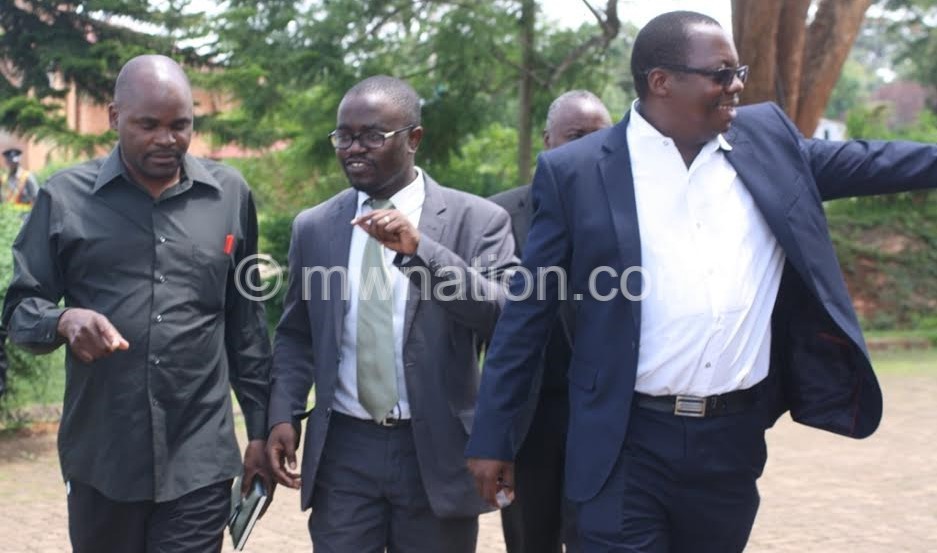CSOs to disseminate Maizegate report
Civil society organisations (CSOs) have said they will from February 20 2017 start disseminating findings of the commission of inquiry into the purchase of maize from Zambia.
Among others, the report describes as suspicious some dealings involving Minister of Agriculture, Irrigation and Water Development George Chaponda.

The CSOs—Human Rights Consultative Committee (HRCC), Centre for the Development of People (Cedep), Youth and Society (YAS) as well as Church and Society Programme of Synod of Livingstonia—believe this process will help them get feedback that will inform their next course of action.
In the statement issued yesterday, the CSOs’ leaders (Charles Kajoloweka-YAS, Gift Trapence-Cedep, Robert Mkwezalamba-HRCC and Moses Mkandawire-Church and Society), commended the commission for its “dedication and boldness in taking up the challenge of bringing to light the truth about the maize scam”.
“We welcome this historic and incredible report which undoubtedly will aid government, stakeholders and the people of Malawi in making informed decisions. Further, we are waiting for the report by the joint Parliamentary Committee investigating the same scam. The two reports will, therefore, be jointly assessed and inform our position.
“To this effect, beginning Monday 20th February 2017, the undersigned CSOs will facilitate regional public meetings in Mzuzu, Lilongwe and Blantyre to help in disseminating the report among citizens and stakeholders and receive feedback,” reads the statement in part.
The CSOs have since urged the citizenry to appreciate the report and make their informed contributions to this process as “we collectively continue to pursue this fight against corruption and impunity”.
The commission of inquiry, led by retired Chief Justice Anastazia Msosa, told President Peter Mutharika during presentation of their report on Saturday that the Agricultural Development and Marketing Corporation (Admarc) was grossly negligent for not negotiating a lower price under the contract with Zambia Cooperative Federation (ZCF).
“The commission, therefore, finds that Admarc was grossly negligent for not negotiating a lower price under the ZCF contract. The commission also established that for the ZCF contract, Admarc did not inform the Board and did not seek a specific approval from ODPP on this contract.
Rather, the approval sought from ODPP, which was also irregular in similar fashion to the Kaloswe approval, was for the assignment of proceeds from Kaloswe to ZCF.
“The commission further established that by October, despite the export ban, ZCF did not have maize to supply to Admarc due to financial constraints. Following the lifting of the maize export ban by Zambia, ZCF entered into a contract with Transglobe to supply 50 000 metric tonnes of maize to Admarc on their behalf at a price of US$337.50 per metric tonne,” reads summary of the report in part.
In view of this, the commission then recommended that disciplinary proceedings should be instituted against senior Admarc management.
On Chaponda, the commission said his involvement with Transglobe in the deal was suspicious, recommending that the Anti-Corruption Bureau (ACB) must investigate him.
Adds the summary: “The commission also established that when Honourable Chaponda went to Zambia as a special envoy, a Tayub of Transglobe was also in Zambia meeting with officials in the Ministry of Agriculture. The commission found two notable things about this development.
“First, the export ban was lifted. Second, the Ministry of Agriculture in Zambia issued export licences to both ZCF and Transglobe splitting the contract tonnage of 100 000 metric tonnes that was contracted between ZCF and Admarc in equal share of 50 000 metric tonnes with Transglobe.”





